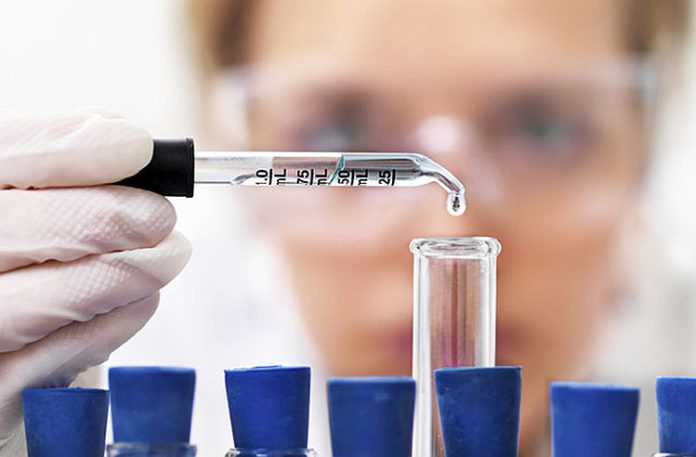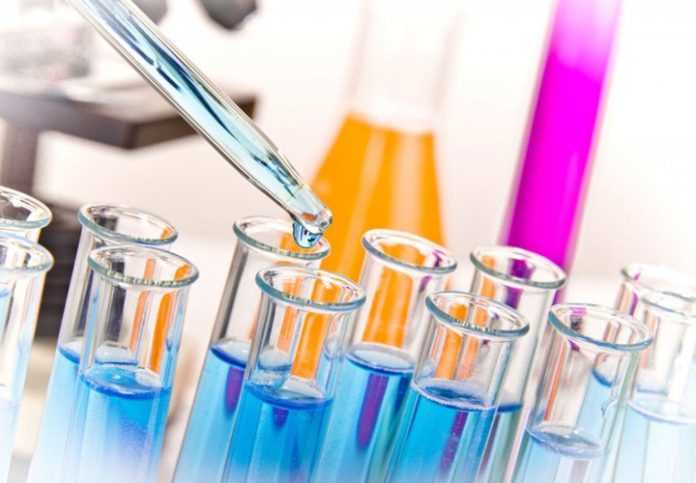Hundreds of races in Bantam, Juvenile, Junior, Seniors and Masters divisions were run in the first U.S. Canoe Sprint Nationals run under the supervision of the American Canoe Association, in Oklahoma City, Oklahoma from 1-4 August.
In the senior division, eight athletes dominated the Canoe and Kayak divisions:
Men’s C-1: Ken Kasperbauer won the C-1 200 m and 500 m and silvers in the 1,000 m and 5,000 m, while Gavin Ross won the C-1 1,000 m and 5,000 m races.
Men’s K-1: Stanton Collins took the K-1 200 m and 500 m sprints, while Alexander Lee won the 1,000 m and 5,000 m races.
Women’s C-1: Nevin Harrison was the best sprinter at 200 m and 500 m, but Ann Armstrong won four individual medals, taking the 5,000 m race and silvers in the 200 m, 500 m and 1,000 m.
Women’s K-1: Sammie Barlow won the 500 m and 1,000 m races, plus silver in the 200 m and 5,000 m, while Kaitlyn McElroy won the 200 m and 5,000 m, and was silver medalist in the 500 m and 1,000 m.
The C-2, C-4, K-2 and K-4 races mostly featured these stars, paired with others in varying combinations and permutations. Kasperbauer won three more golds, Collins and Lee two more among the men; Harrison won two more golds in combination races, Barlow won four more and McElroy two more. Summaries:
ACA National Sprint Championships
Oklahoma City, Oklahoma (USA):
1-4 August 2018.
(Full results here)
Men
C-1/200 m: 1. Ken Kasperbauer, 44.096; 2. Gavin Ross, 46.050; 3. Andrew Field, 46.485; 4. Mike Grachev, 57.662; 5. Luke Guenther, 1:59.701.
C-1/500 m: 1. Kasperbauer, 2:01.133; 2. Field, 2:08.921; 3. Ross, 2:13.953; 4. Zachary Guay, 2:16.665; 5. Grachev, 2:20.609; 6. Guenther, 4:17.558.
C-1/1,000 m: 1. Ross, 4:25.224; 2. Kasperbauer, 4:25.748; 3. Field, 4:57.336; 4. Aaron Dickson, 5:04.800.
C-1/5,000 m: 1. Ross, 23:00.708; 2. Kasperbauer, 23:46.696; 3. Field, 25:27.625.
C-2/200 m: 1. A. Field/K. Kasperbauer, 42.921; 2. B. Rhodes/G. Ross, 52.690; 3. A. Mullican/S. Collins, 56.177 (only entrants).
C-2/1,000 m: 1. J. Grady/E. Surles, 4:09.415; 2. A. Field/K. Kasperbauer, 4:24.291; 3. G. Ross/A. Story, 4:57.254 (only entrants).
C-4/500 m: 1. C. Sexton/B. Anderson/A. Saleh/K. Kasperbauer, 1:57.590; 2. M. Grachev/G. Ross/S. Andrew/B. Rhodes, 2:06.630 (only entrants).
C-4/1,000 m: 1. J. Grady/K. Kasperbauer/ B. Gregory/A. Field, 4:09.689; 2. E. Goldwaite/G. Ross/M. Grachev/B. Rhodes, 4:41.416.
K-1/200 m: 1. Stanton Collins, 37.873; 2. Aaron Mullican, 38.525; 3. Miles Cross-Whiter, 38.606; 4. Alexander Lee, 39.413; 5. Nate Errez, 40.178; 6. Jonathan Espinosa, 40.909; 7. Jesse Lishchuk, 41.097; 8. Thom Crockett, 42.063.
K-1/500 m: 1. Collins, 1:46.543; 2. Cross-Whiter, 1:47.223; 3. Lee, 1:47.567; 4. Lishchuk, 1:48.167; 5. Mullican, 1:48.363; 6. Owen Farley-Klacik, 1:50.281; 7. Crockett, 1:50.417; 8. Errez, 1:50.645.
K-1/1,000 m: 1. Lee, 3:53.941; 2. Lishchuk, 3:54.681; 3. Errez, 3:58.793; 4. Tim Burdiak, 3:59.647; 5. Humbertson, 4:01.221; 6. Zachary Alva, 4:03.423; 7. Crockett, 4:03.607; 8. Cross-Whiter, 4:06.045.
K-1/5,000 m: 1. Lee, 19:15.869; 2. Mullican, 19:16.149; 3. Humbertson, 19:28.389; 4. Burdiak, 20:17.080; 5. S. Collins, 20:39.735; 6. Crockett, 20:44.871; 7. Michael Miller, 20:53.693; 8. Austin Schwinn, 22:15.679.
K-2/200 m: 1. S. Collins/A. Mullican, 34.918; 2. M. Cross-Whiter/A. Lee, 35.453; 3. K. Wilding/M. Whitcomb, 38.101; 4. N. Errez/T. Crockett, 38.130; 5. S. Barlow/T. Burdiak, 40.573; 6. R. Phillips/M. Miller, 41.414; 7. W. Reavley/Z. Alva, 45.787; 8. E. Palmer/N. Miller, 47.324.
K-2/5,000 m: 1. K. Wilding/N. Whitcomb, 19:26.849; 2. S. Barlow/N. Errez, 19:29.615; 3. J. Espinosa/R. Phillips, 19:33.413; 4. M. Herbert/S. Herbert, 21:17.355; (only entrants).
K-2/1,000 m: 1. M. Cross-Whiter/A. Lee, 3:29.113; 2. A. Mullican/S. Collins, 3:33.026; 3. T. Crockett/N. Errez, 3:41.711; 4. N. Whitcomb/K. Wilding, 3:43.586; 5. S. Barlow/T. Burdiak, 3:47.433; 6. N. Humbertson/E. Palmer, 3:54.637; 7. Z. Alva/W. Reavley, 4:02.323.
K-4/500 m: 1. O. Farley-Klacik/A. Surles/A. Mullican/S. Collins, 1:30.881; 2. J. Lishchuk/A. Lee/M. Cross-Whiter/W. Reavley, 1:33.713; 3. N. Errez/T. Crockett/E. Truesdale/T. Burdiak, 1:36.039; 4. S. Barlow/J. Espinosa/R. Phillips/M. Miller, 1:40.670; 5. P. Jenkins/S. Talbert/K. Wilding/N. Whitcomb, 1:41.018; 6. M. Riszkiewicz/J. DePalma/T. Goetz/Z. Alva, 2:06.978 (only finalists).
K-4/1,000 m: 1. J. Lishchuk/A. Lee/M. Cross-Whiter/W. Reavley, 3:16.740; 2. T. Burdiak/E. Truesdale/T. Crockett/N. Errez, 3:17.804; 3. Z. Alva/J. Adelberg/E. Palmer/N. Humbertson, 3:27.094; 4. K. Wilding/N. Whitcomb/A. Schwinn/Z. Guay, 3:28.050; 5. M. Miller/R. Phillips/J. Espinosa/S. Barlow, 3:31.634 (only entrants).
Women
C-1/200 m: 1. Nevin Harrison, 50.671; 2. Ann Armstrong, 51.815; 3. Andreea Ghizila, 53.573; 4. Kaley Martin, 57.156; 5. Azura Murphy, 57.967; 6. Lia Gaetano, 1:01.513; 7. Hana Neutz, 1:01.986; 8. Carson Walter, 1:02.297.
C-1/500 m: 1. Harrison, 2:24.299; 2. Armstrong, 2:32.966; 3. Gaetano, 2:37.312; 4. Murphy, 2:39.902; 5. Martin, 2:41.328; 6. Neutz, 2:52.886; 7. Anna Martinson, 2:56.078; 8. Delaney Valentine, 3:50.198.
C-1/1,000 m: 1. Gaetano, 5:10.721; 2. Armstrong, 5:12.997; 3. Martoin, 5:18.444; 4. Murphy, 5:18.472; 5. Neutz, 5:54.654; 6. Martinson, 6:04.798; 7. Valentine, 7:21.315 (only entrants).
C-1/5,000 m: 1. Armstrong, 26:56.808; 2. Martin, 28:17.306; 3. Martinson, 31:42.647; 4. Valentine, 41:33.499 (only entrants).
C-2/200 m: 1. H. Neutz/A. Murphy, 53.072; 2. L. Gaetano/A. Ghizila, 53.473; 3. K. Martin/P. Farley-Klacik, 58.932; 4. D. Valentine/A. Martinson, 1:38.632 (only entrants).
C-2/500 m: 1. L. Gaetano/Ghizila, 2:20.208; 2. A. Murphy/H. Neutz, 2:25.190; 3. P. Farley-Klacik/K. Martin, 2:29.902; 4. C. Walter/A. Martinson, 2:33.646; 5. A Armstrong/D. Valentine, 2:49.493 (only finalists).
C-2/5,000 m: 1. N. Harrison/H. Neutz, 23:34.460; 2. M. Jacobsen/Z. Hein, 27:38.348 (only entrants).
C-4/500 m: 1. A. Martinson/A. Murphy/N. Harrison/H. Neutz, 2:15.920; 2. H. Schuette/K. Rhodes/B. Schuette/A. Armstrong, 2:18.164; 3. L. Borm/D. Borm/M. Long/C. Stow, 2:36.948; 4. R. Coffey/M. McMullen/A. Morse/C. Gall, 3:12.382 (only entrants).
K-1/200 m: 1. Kaitlyn McElroy, 46.541; 2. Sammie Barlow, 47.832; 3. Mira Carrao, 49.951; 4. Alyson Morse, 49.971; 5. Danielle Borm, 50.664; 6. Leilani Borm, 50.939; 7. Courtney Stow, 52.668; 8. Bria Cornforth, 52.679.
K-1/500 m: 1. Barlow, 2:01.036; 2. McElroy, 2:01.352; 3. L. Borm, 2:12.388; 4. Renae Jackson, 2:12.408; 5. Carrao, 2:18.226; 6. D. Borm, 2:19.214; 7. Cornforth, 2:21.477; 8. Stow, 2:21.792.
K-1/1,000 m: 1. Barlow, 4:25.976; 2. McElroy, 4:30.232; 3. Jackson, 4:38.207; 4. Corrao, 4:55.552; 5. D. Borm, 4:58.529; 6. L. Borm, 4:59.094; 7. Cornforth, 5:06.632; 8. Alessia Faverio, 5:06.682.
K-1/5,000 m: 1. McElroy, 20:44.736; 2. Barlow, 20:53.698; 3. Jackson, 22:22.421; 4. Cornforth, 22:36.047; 5. L. Borm, 22:55.675; 6. Corrao, 23:15.958; 7. Farran Smith, 23:43.028; 8. Stow, 23:46.601.
K-2/200 m: 1. K. McElroy/S. Barlow, 44.654; 2. C. Stow/M. Carrao, 48.599; 3. A. Morse/C. Gall, 51.552; 4. R. Jackson/M. Long, 52.613; 5. K. Rhodes/K. McNamee, 53.114; 6. F. Smith/A. Blanchard, 53.247; 7. L. Benedict/A. Allison, 1:04.043 (only finalists).
K-2/500 m: 1. K. McElroy/S. Barlow, 1:56.829; 2. C. Stow/M. Corrao, 2:06.120; 3. M. Long/R. Jackson, 2:10.278; 4. F. Smith/A. Blanchard, 2:14.904; 5. L. Benedict/A. Allison, 2:34.776 (only entrants).
K-4/500 m: 1. M. Corrao/S. Barlow/L. Borm/D. Borm, 1:53.564; 2. B. Cornforth/M. Long/R. Jackson/C. Stow, 1:59.836; 3. A. Blanchard/K. Scholz/M. Bowmar/F. Smith, 2:02.604; 4. K. Ilcheva/I. Alberola/C. Gall/A. Morse, 2:07.513; 5. K. McNamee/L. Ramm/K. Rhodes/E. Rhodes, 2:07.809; (only entrants).
K-4/1,000 m: 1. M. Corrao/D. Borm/L. Borm/S. Barlow, 3:51.096; 2. B. Cornforth/R. Jackson/M. Long/C. Shaw, 4:02.072; 3. Eli Holmes/K. McNamee/L. Ramm/K. Rhodes, 4:10.293; 4. C. Colburn/F. Smith/K. Scholz/A. Blanchard, 4:16.519 (only entrants).























